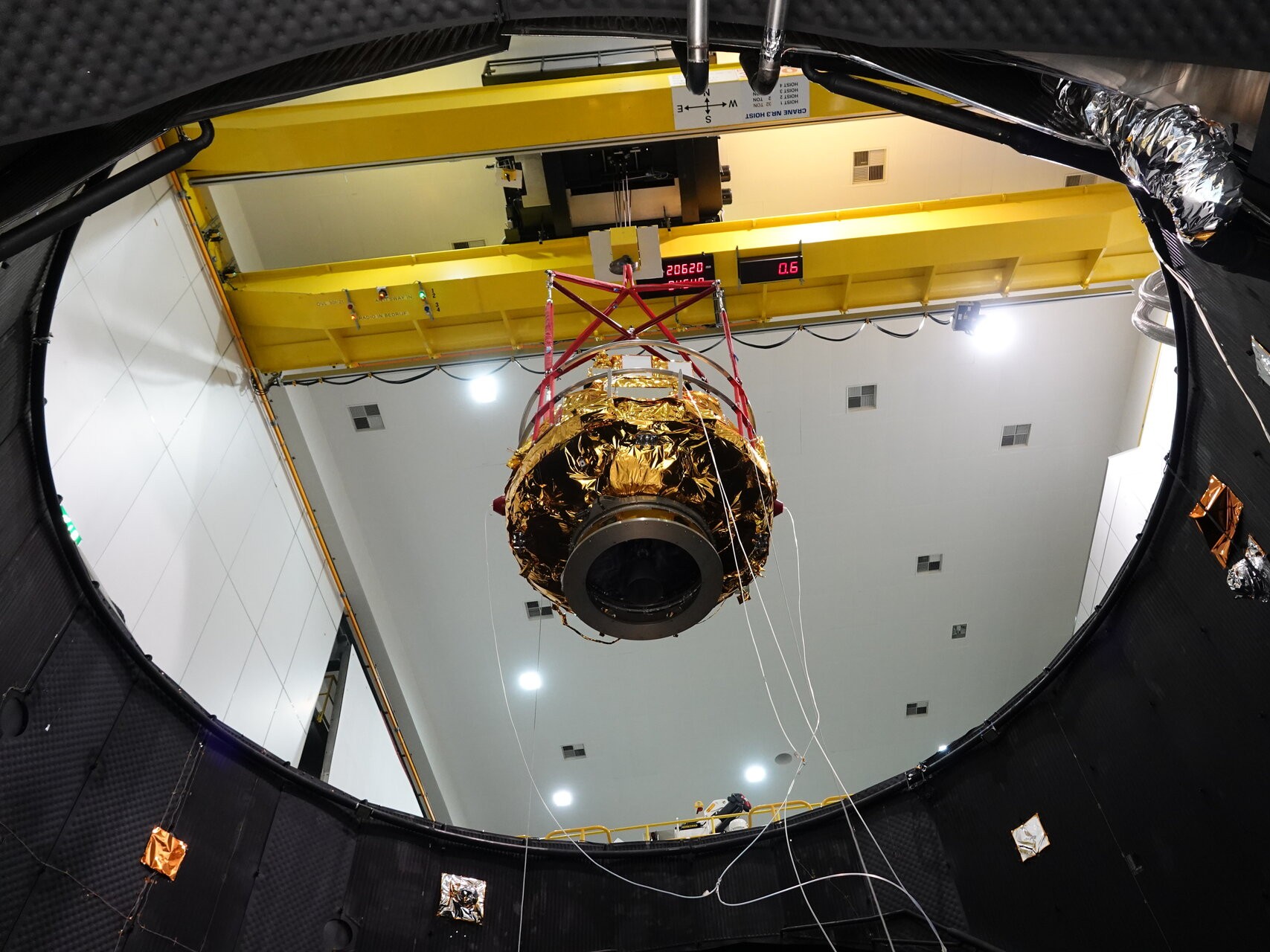Science
ESA Launches Mission to Unveil Earth’s Response to Solar Radiation

The European Space Agency (ESA) has launched a groundbreaking mission that aims to provide the first comprehensive view of how Earth reacts to radiation from the Sun. This initiative, known as the Solar Orbiter, is designed to study solar activity and its impact on our planet, marking a significant advancement in space research.
The mission, which commenced in March 2024, will gather crucial data on solar emissions and their interaction with Earth’s atmosphere. Understanding these dynamics is vital for predicting space weather events that can disrupt satellite communications, navigation systems, and even power grids on Earth. By providing real-time data, the Solar Orbiter intends to enhance our preparedness for solar storms.
Understanding Solar Radiation and Its Impact
Solar radiation poses a range of challenges for technology and infrastructure on Earth. High-energy particles from the Sun can cause geomagnetic storms that lead to power outages and communication failures. According to ESA officials, the Solar Orbiter will help scientists understand these phenomena better, enabling more accurate forecasts of solar-related disruptions.
The mission will focus on the Sun’s polar regions, which have been difficult to observe due to their positioning. By examining these areas, scientists hope to unlock the secrets of solar magnetic fields and their influence on solar activity. This information is crucial for developing effective mitigation strategies to protect technological systems from solar radiation effects.
Collaborative Efforts and Future Implications
The Solar Orbiter is a collaborative project involving multiple space agencies, including NASA, which provides instruments and expertise. This partnership enhances the mission’s scope, allowing for a broader range of observations and analyses. The data collected from the Solar Orbiter will be shared with global research communities, paving the way for advances in our understanding of space weather.
ESA’s commitment to this mission reflects its dedication to addressing critical scientific questions that have implications for technology and daily life. As climate change continues to affect Earth’s environment, understanding solar radiation becomes increasingly important.
The mission is set to last several years, during which the Solar Orbiter will transmit valuable data back to Earth. Researchers anticipate that findings from this mission will contribute to the development of more robust systems capable of withstanding solar radiation’s impact, thus safeguarding essential services and infrastructure worldwide.
As the mission progresses, the international community will await new insights into our Sun and its profound effects on Earth. The Solar Orbiter represents a pivotal step in our quest to comprehend the complex interactions between solar activity and our planet, ultimately enhancing our resilience against space weather challenges.
-

 Science1 month ago
Science1 month agoNostradamus’ 2026 Predictions: Star Death and Dark Events Loom
-

 Technology2 months ago
Technology2 months agoOpenAI to Implement Age Verification for ChatGPT by December 2025
-

 Technology6 months ago
Technology6 months agoDiscover the Top 10 Calorie Counting Apps of 2025
-

 Health4 months ago
Health4 months agoBella Hadid Shares Health Update After Treatment for Lyme Disease
-

 Health5 months ago
Health5 months agoAnalysts Project Stronger Growth for Apple’s iPhone 17 Lineup
-

 Technology4 months ago
Technology4 months agoElectric Moto Influencer Surronster Arrested in Tijuana
-

 Education5 months ago
Education5 months agoHarvard Secures Court Victory Over Federal Funding Cuts
-

 Health5 months ago
Health5 months agoErin Bates Shares Recovery Update Following Sepsis Complications
-

 Technology6 months ago
Technology6 months agoDiscover How to Reverse Image Search Using ChatGPT Effortlessly
-

 Technology7 months ago
Technology7 months agoMeta Initiates $60B AI Data Center Expansion, Starting in Ohio
-

 Technology7 months ago
Technology7 months agoRecovering a Suspended TikTok Account: A Step-by-Step Guide
-

 Science3 months ago
Science3 months agoStarship V3 Set for 2026 Launch After Successful Final Test of Version 2




















